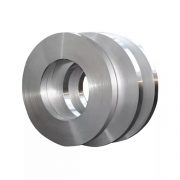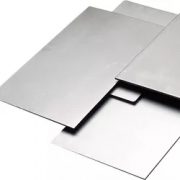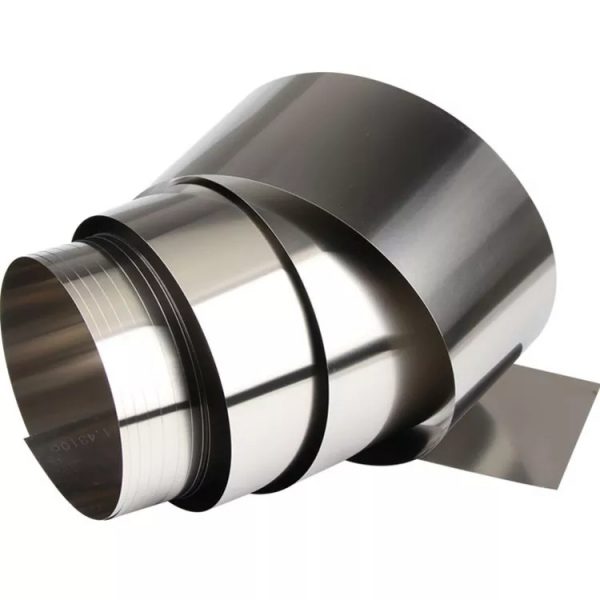

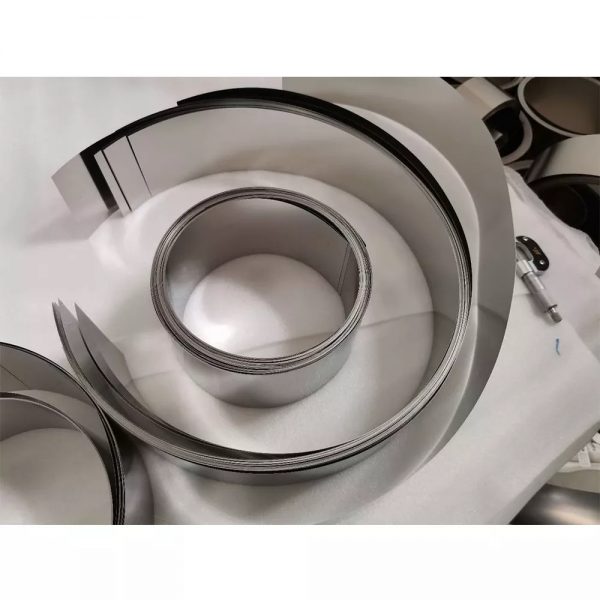
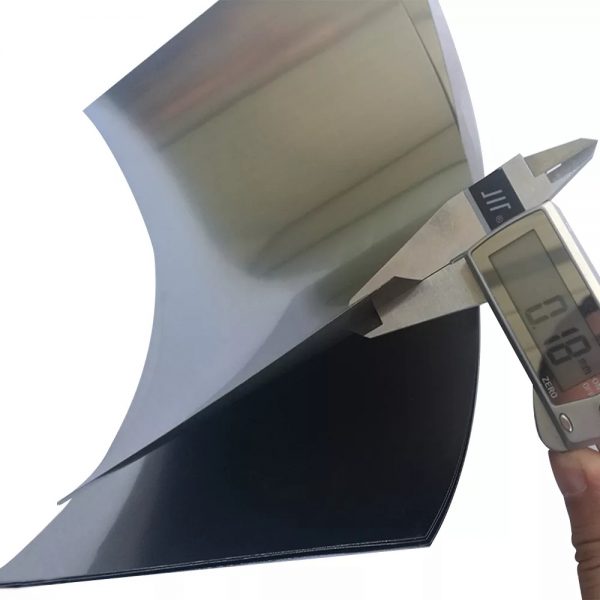
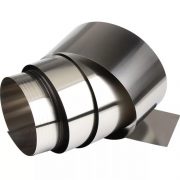

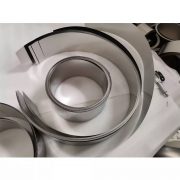
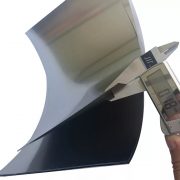
Titanium Foil
Titanium foil is a titanium plate, strip, roll or sheet with a thickness of less than or equal to 0.2mm. The maximum width of rolled titanium foil is about 600mm.
The width of the titanium foil is cut according to the requirements of the user.But the wider the manufacturing, the higher the productivity.
Titanium foil is mainly used in aerospace, navigation, nuclear power, electronics, chemical industry, petroleum, precision manufacturing, medical pharmaceutical and other aspects.
- Description
- Specifications
- Inquiry
Titanium foil – Preparation Method
The raw material for industrially producing titanium is mainly rutile ore or high titanium slag (containing 92% or more of Ti02). Titanium sponge production process is based on high titanium slag and petroleum coke as raw material for the production of titanium tetrachloride. Titanium sponge can be obtained by reducing refined titanium tetrachloride with magnesium or sodium in a rare gas stream.
Magnesium reduction distillation method: the proportion of high titanium slag and petroleum coke is 100 (30~33), and the mixture is broken to less than 160 mesh, and sent to the fluidized bed chlorination furnace, and the chlorine gas is passed through the bottom of the furnace, uniformly enter the reaction section of the furnace body, and react with the mixed material of high titanium slag and petroleum coke. The reaction temperature was about 850 °c. The generated titanium tetrachloride gas is discharged from the top of the furnace and enters two separator dust collectors connected in series, so that high boiling points such as iron trichloride, iron dichloride, manganese dichloride and aluminum trichloride mixed in the titanium tetrachloride gas are deposited at the bottom of the separator dust collector. The gas was reintroduced into the two sets of condensers connected in series, and the titanium tetrachloride gas was cooled to below 136 ° C. To obtain a crude titanium tetrachloride solution. The low-boiling matters, such as silicon tetrachloride, therein are distilled off by means of a float valve column distillation. After heating to 140 ° C. In a copper chip Tower, the gasified titanium tetrachloride is passed into a copper chip Tower, and the contained impurity vanadyl trichloride is reduced by copper to a low-valent chloride of vanadium. The purified titanium tetrachloride gas discharged from the top of the column was subjected to a reduction reaction with magnesium in a rare gas stream at about 900 ° C. To obtain titanium sponge. Since the resulting sponge-like titanium also contains magnesium chloride as a by-product and unreacted magnesium, the sponge-like titanium must be placed under a vacuum of 0.1 to 10-3 Pa, the impurities were separated from the titanium by heating to about 1000 °c.
Titanium foil – Use
titanium alloy has high strength, a large number of structural materials used in the manufacture of military supersonic aircraft, compression Components of jet engines, components of aircraft frames, housings, fire barriers, rivets, structural components of air transport equipment, there is a “space metal”; Military facilities and military ships armored plate and propeller blades. In the civilian industry, titanium and its alloys can be used in the manufacture of various pumps, valves, filtration, evaporation equipment wire mesh and various machine parts. Powdered titanium can be used as an oxygen scavenger in the electron tube manufacturing process.
Titanium foil – Safety
hazard code: flammable solid. GB4.1 class 41505. UN NO.2678 (strontium powder). IMDG CODE P. 4177, Class 4.1. Each batch of product should be divided into galvanized iron barrels lined with plastic film, and the weight of each (piece) of the drum is 70~250, and it is sealed with a large open cover. Magnesium reduction titanium must be evacuated and filled with argon in the barrel after packaging. Titanium can be protected without argon by sodium reduction. “Moisture-proof” shall be indicated on the outside of the packaging barrel. Should be stored in a ventilated, dry warehouse. Shall not be stacked in the open air, and shall not be mixed with acid, alkali and other corrosive substances. During the transport process, it is necessary to prevent rain and humidity. During loading and unloading, care should be taken to prevent breakage of the packaging barrel. Titanium tetrachloride used in the production process can make people suffering from chronic bronchitis, chronic hypertrophic rhinitis, pharyngitis. Autonomic nervous system dysfunction, increased tendon reflexes, tremor of the eyelids and hands, hyperhidrosis. Thermal burns were more difficult to heal when exposed to 10% titanium tetrachloride solution. When exposed to titanium tetrachloride smoke, wear an industrial filter gas mask. To protect the eyes and skin. If you accidentally spatter on the skin, wipe it off with cotton gauze and then wash it thoroughly with water. Production equipment should be closed and the workshop should be well ventilated. Dry powder and dry sand can be used to put out the fire, and water, foam and carbon dioxide are strictly prohibited. In case of high heat or intense combustion, explosion may be caused by water suppression.
Titanium foil is a titanium plate, strip, roll or sheet with a thickness of less than or equal to 0.2mm. The maximum width of rolled titanium foil is about 600mm.
The width of the titanium foil is cut according to the requirements of the user.But the wider the manufacturing, the higher the productivity.
Titanium foil is mainly used in aerospace, navigation, nuclear power, electronics, chemical industry, petroleum, precision manufacturing, medical pharmaceutical and other aspects.
Titanium alloy has high strength and low density, good mechanical properties, good toughness and corrosion resistance.
The two most prominent advantages of titanium are high specific strength and strong corrosion resistance, which determines that titanium must have broad application prospects in aerospace, weaponry, energy, chemical, metallurgy, construction and transportation. The rich reserves provide a resource base for the wide application of titanium.
| Description | Titanium foil |
| Material | Gr1, Gr2, Gr3,Gr4,Gr5, Gr7, Gr6,Gr9, Gr11, Gr12 ,Gr16, Gr17,Gr25TA0,TA1,TA2,TA5,TA6,TA7,TA9,TA10,TB2,TC1,TC2,TC3,TC4 |
| Standard | ASTM B265,ASME SB265,DIN17851,TiA16Zr5Mo1.5,JIS4100-2007,GB3461-2007 |
| Size | Thickness:0.05-0.2mmWidth:3-600mm
Length:according to requirements |
| MOQ | 100 Kilogram/Kilogrames |
| Equepment used | CNC lathes, Milling machine, Machining Center,Thread rolling machine Magnetic needle polishing machine |
| Features | 1.high corrosion resistance2.low density
3.non-ferromagnetic 4.good biocompatibility |
| Package | Standard export package,suit for all kinds of transport ,or as required. |
| Application | 1.Based on High intensity,titanium products tensile strength can be up to 180Kg/mm².2.Titanium and titanium alloy in aviation industry, is called “space metal”; In addition,
in the shipbuilding industry, chemical industry, manufacturing machinery parts, telecommunications equipment, hard alloy, etc have increasingly extensive application 3.In addition, because of the titanium alloy with the human body has very good compatibility, so the titanium alloy can also be artificial bone. |
Chemical Composition:
| Composition (%) | C | N | Fe | O | H | Al | V | Ti |
| GR1 | ≤0.08 | ≤0.03 | ≤0.20 | ≤0.18 | ≤0.015 | – | – | Bal. |
| GR2 | ≤0.08 | ≤0.03 | ≤0.30 | ≤0.25 | ≤0.015 | – | – | Bal. |
| GR5 | ≤0.10 | ≤0.05 | ≤0.30 | ≤0.20 | ≤0.015 | 5.50-6.80 | 3.50-4.50 | Bal. |
|
Features
|
The density of titanium is 4.506-4.516g/cm^3, melting point is 1668, boiling point is 3535. Therefore Titanium have low
weight,excellent high strength and nonmagnetic festures, low density, excellent corrosion resistance features, high specific strength and high temperature resistance features, so it is widely used in chemical industry field, medical field, electronics manufacture, mechanical parts field, automobile industry, and aerospace field, etc. |
|||
Related Products
-
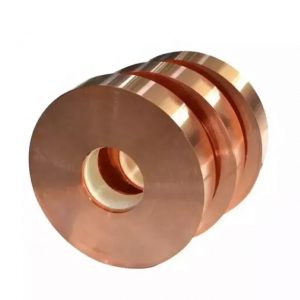
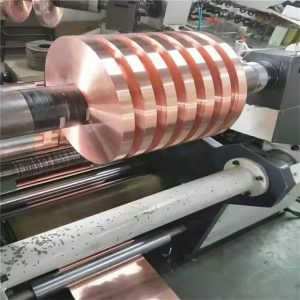 Read MoreQuick View
Read MoreQuick ViewCopper Strips
Copper strips have high electrical and thermal conductivity, that’s why copper strips are the best for transformer winding.
What’s more, copper strips transfer heat more effectively than other metals strips.
Copper strips are more malleable and have high tensile strength. Corrosion resistance, high degree stability, and heat dissipation of copper strips are superior to other metals.
Copper strips are mostly used in the electrical and electronics sectors because copper is non-magnetic and non-sparking. Copper strips are mostly used in heat exchangers, transformers winding, condensers, and lightning conductors.
Copper strip thickness range from 0.03mm to 3.0mm. Copper strips can be manufactured in different widths and thicknesses per the customer’s requirement.
If any questions, please feel free to contact sales@grandsteeltube.com
-
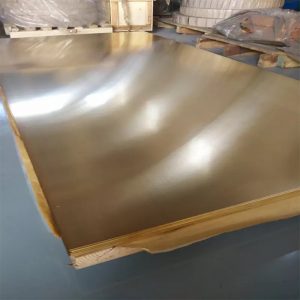
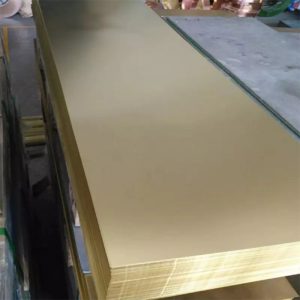 Read MoreQuick View
Read MoreQuick ViewBrass Sheet
Brass Sheet based on electrolytic copper, zinc and trace elements as its raw material, through processing by ingot, hot rolling, cold rolling, heat treatment, surface cleaning, cutting, finishing, and then packing. Material processes performance, plasticity, mechanical properties, corrosion resistance, performance and good tin.
It has been widely used in electrical, automotive, communications, hardware, decoration and other industries.
-
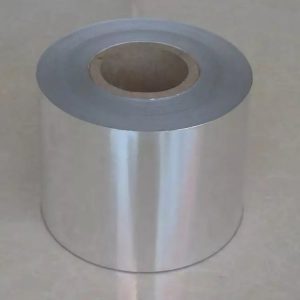
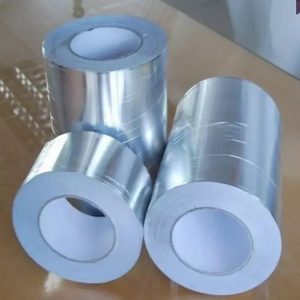 Read MoreQuick View
Read MoreQuick ViewAluminium foil
Aluminium foil is aluminium prepared in thin metal leaves with a thickness of less than 0.2mm (7.9 mils); thinner gauges down to 4 micrometers are also commonly used. Standard household foil is typically 0.016 mm (0.63 mils) thick, and heavy-duty household foil is typically 0.024 mm (0.94 mils). And the air conditioner foil can be thinner than 0.0047mm, and some food foil thinner than 0.002mm. The foil is pliable and can be readily bent or wrapped around objects. Thin foils are fragile and are sometimes laminated with other materials such as plastics or paper to make them stronger and more useful. It’s used industrially for a variety of purposes, including packing, insulation and transportation. At home, people use aluminum foil for food storage, to cover baking surfaces and to wrap foods, such as meats, to prevent them from losing moisture while cooking.
-
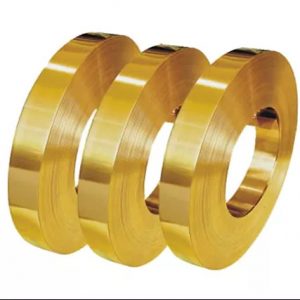
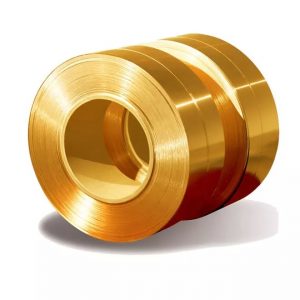 Read MoreQuick View
Read MoreQuick ViewBrass Strips
Brass Strip has higher strength than copper, good electrical and thermal conductivity, high corrosion resistance in the atmosphere and freshwater, and good plasticity, easy to cold and hot pressure processing, easy welding, forging and tin plating, no stress corrosion cracking.
-
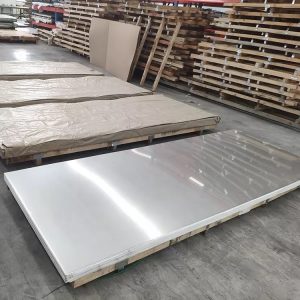
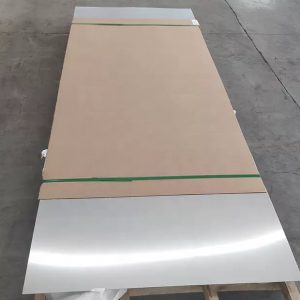 Read MoreQuick View
Read MoreQuick ViewStainless Steel Sheets
Stainless Steel Sheets & Plates are made up of austenitic steel mainly contain chromium and nickel with the addition of rare elements which offer high corrosion resistance, high tensile strength, excellent impact & toughness and high-temperature resistance at cryogenic temperatures. Moreover, these SS Sheets & Plates are highly demanded in various industries like chemical & food processing, heat exchangers, fresh & saltwater marine environments, automobiles and more.
-
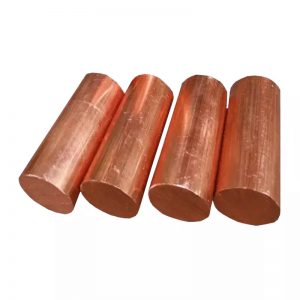
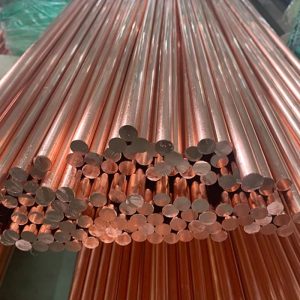 Read MoreQuick View
Read MoreQuick ViewCopper Rod
Copper bar is a kind of non-ferrous metal processing bar, which has better processing performance and high conductivity. It is mainly divided into brass rod (copper zinc alloy, cheaper), purple copper rod (higher copper content).
Brass rod is a rod shaped object made of copper and zinc alloy, named for its yellow color. The melting point of brass, which contains 56% to 68% copper, is 934 to 967 degrees. Brass has good mechanical properties and wear resistance, and can be used to manufacture precision instruments, ship parts, gun casings and so on. Used in air conditioning pipe, refrigerator pipe, oil pipe, water supply pipe and all kinds of mechanical materials, automotive synchronizer gear ring, Marine pump, valve, structural parts, friction accessories, etc.
Purple copper rod is named for its purple red color. It has good electric conductivity, heat conduction, corrosion resistance and processing properties. It can be welded and brazed. Characteristics: high purity, fine structure, low oxygen content. No porosity, trachoma, loose, excellent electrical conductivity, high precision of electroetching mold surface, after heat treatment process, no direction of the electrode, suitable for fine play, fine play, with good thermoelectric channel, processability, ductility, corrosion resistance and weather resistance.
-
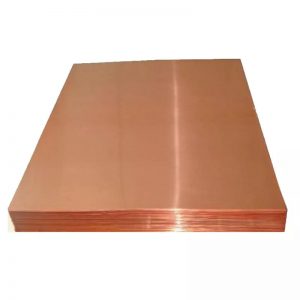
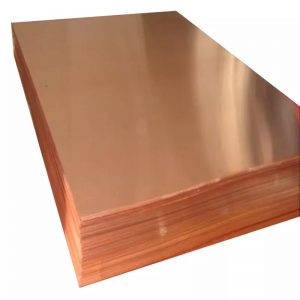 Read MoreQuick View
Read MoreQuick ViewCopper Sheet
Copper sheet is a very workable and malleable form of metal, high in electrical and thermal conductivity, and provides excellent corrosion resistance. A beautiful and versatile metal, copper has been utilized for thousands of years. Historically, it served as a favorite choice in making tools, vessels, and sculptures. Copper is also known for its beautiful patinas. When exposed, unsealed, to an outdoor environment, copper begins to oxidize. This exposure creates beautiful color variations in the form of a patina. The coloring of the patina will change and develop character over time while serving to protect the metal from deterioration. People will also create a patina quickly with the use of chemical mixtures that speed the process up and allow a patina to develop without outdoor exposure. Copper sheets can also be hammered, tooled, or embossed for added texture and decorative or functional appeal and come in many thicknesses from very thin copper foil to thick copper plate. It also comes in many alloys that blend other metals with copper. At Grand Copper, we sell pure copper -C110 (other alloys and tempers available upon request). This high purity provides the premium quality needed for projects and applications in a wide range of industries and uses. We take pride in providing the best material. Our high-quality, affordable material and friendly, first-rate customer service have made us a leader in the industry for over a decade.
-
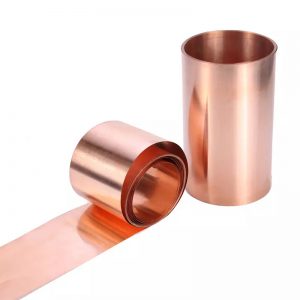
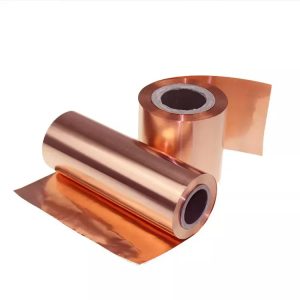 Read MoreQuick View
Read MoreQuick ViewCopper Foil
Copper is a reddish brown metallic element with outstanding characteristics such as good ductility, ductility, heat and conductivity
Pure copper is a very soft and ductile metal To achieve the required performance, we can alloy with other metals Brass and bronze are widely used copper alloys
Copper foil is made of copper or copper alloy by hot rolling and cold rolling The thickness of copper foil ranges from 0.03mm to 0.2mm, and the width and length can be customized according to customer requirements
-
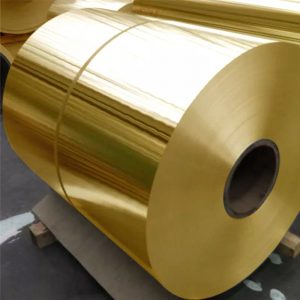
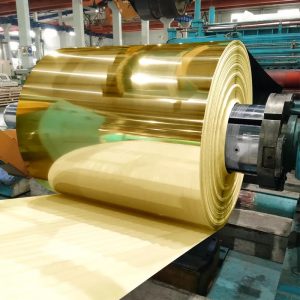 Read MoreQuick View
Read MoreQuick ViewBrass Coil
Brass coil has excellent plasticity (best in brass) and high strength, good machinability, easy to weld, very stable to general corrosion, but prone to corrosion cracking; brass coil is copper and the alloy of zinc is named for its yellow color.
The mechanical properties and wear resistance of the brass coil are very good, and can be used to manufacture precision instruments, ship parts, shells of guns, etc. Brass knocks up and sounds good, so instruments such as cymbals, cymbals, bells, and numbers are made of brass. According to the chemical composition, brass is divided into ordinary copper and special brass.
-
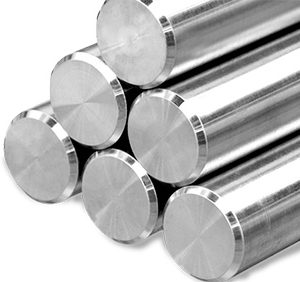
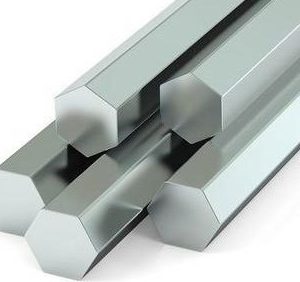 Read MoreQuick View
Read MoreQuick ViewTitanium Bar
- DIN2391 Precision Steel Tube
- EN10305-1/4 Precision Steel Tube
- EN10305-2/3/5/6 Precision Tubes
- SAE Series Precision Tubes
- ISO8535-1 Fuel Injection Tube
- Single/Doulbe Wall Bundy Tube
- Boiler & Pressure Steel Tubes
- Seamless Honed/SRB Steel Tube
- Stainless Capillary Steel Tubes
- Seamless Stainless Tubes & Pipes
- Welded Stainless Tubes & Pipes
- Injection & Control Line Tubes
- Nickel Alloy Tubes & Pipes
- Non-ferrous Capillary Tubes
- Aluminium Tubes & Pipes
- Brass Tubes & Pipes
- Copper Tubes & Pipes
- Titanium Tubes & Pipes
- Extruded/Welded Fin Tube
- Non-Ferrous Precision Tube
- Special Shaped Steel Tubes
- Metallic Coil/Foil/Sheet/Strip

